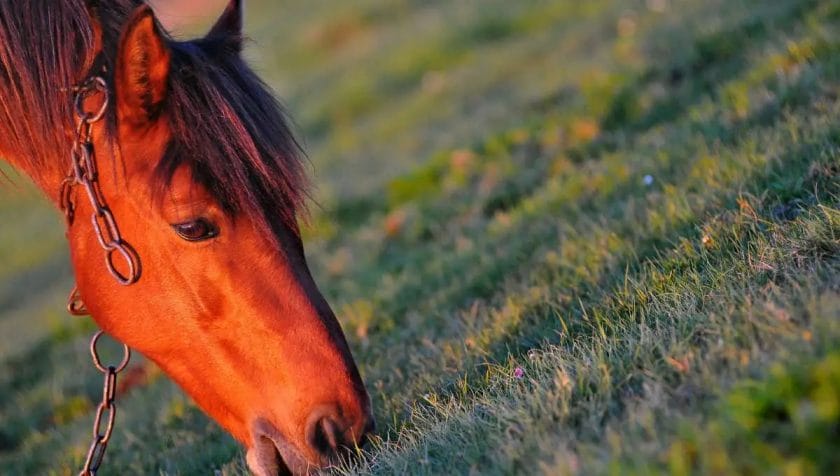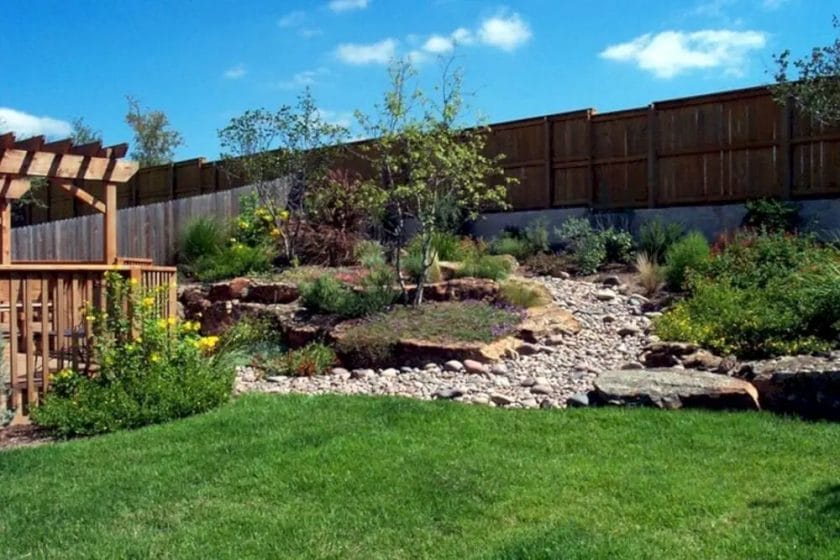Having a horse in your backyard can be a fascinating and fulfilling experience for horse enthusiasts.
Not only does it provide a closer connection with these magnificent creatures, but it also offers convenience and accessibility to daily horse care and activities.
However, before embarking on this endeavor, it’s essential to consider various factors such as space availability, zoning regulations, and the necessary infrastructure to ensure the well-being and safety of the horse.
By thoroughly planning and preparing, you can create a suitable environment for your horse while enjoying the companionship and joys of having a horse in your backyard.

Essential Considerations for Keeping a Horse at Home
Keeping a horse at home can be a rewarding experience, but it also requires careful planning and consideration. Before bringing a horse to your property, there are several essential factors that you need to take into account to ensure the well-being and safety of both the horse and yourself. In this section, we will discuss the key considerations for keeping a horse at home.
1. Adequate Space
The first and foremost consideration when keeping a horse at home is having enough space. Horses are large animals that need room to move and graze. Ideally, your property should have at least one acre of pasture per horse, but more space is always better. The pasture should be securely enclosed with horse-safe fencing to prevent escapes and keep out potential hazards.
2. Shelter and Stabling
Providing suitable shelter for your horse is crucial to protect them from inclement weather conditions. A well-built, well-ventilated horse barn or run-in shed is essential. The shelter should be large enough for the horse to comfortably move around and lie down in, with adequate drainage to prevent standing water and mud. Additionally, you will need to have appropriate stabling facilities if you plan on stabling your horse for periods of time.
3. Feeding and Watering
Proper nutrition is vital for the health and well-being of your horse. You will need to have a reliable source of clean, fresh water available at all times. Automatic waterers or large troughs can be used to ensure a constant supply. As for feeding, horses require a diet consisting of grass or hay, along with appropriate supplements. Make sure you have access to high-quality forage and can provide regular feedings throughout the day.
4. Veterinary Care
Regular veterinary care is essential for maintaining the health of your horse. Find a reputable equine veterinarian in your area and establish a relationship with them. Your horse will need regular vaccinations, deworming, dental care, and routine health check-ups. It’s important to have a plan in place for emergency veterinary care as well, in case your horse falls ill or gets injured.
5. Exercise and Enrichment
Horses are active animals that require regular exercise and mental stimulation. Ensure that you have a designated area for exercising your horse, such as a riding arena or a large, safe space to ride or lunge. Incorporate activities and enrichment into their routine to keep them mentally engaged. This can include providing toys, access to pasture, and opportunities for social interaction with other horses.
6. Waste Management
Proper waste management is essential when keeping a horse at home. Develop a plan for manure removal and disposal to maintain a clean and healthy environment for your horse. Regularly clean the stables and paddocks to prevent the buildup of waste, and consider composting or recycling the manure if possible.
7. Safety Measures
Keeping your horse safe should always be a top priority. Ensure that your property is free from potential hazards, such as toxic plants, loose wires, or sharp objects. Install secure gates and locks to prevent unauthorized access to your horse. It’s also important to have a first aid kit readily available and to educate yourself on basic equine first aid.
In summary, keeping a horse at home requires careful planning and consideration. Adequate space, suitable shelter, proper nutrition, veterinary care, exercise, waste management, and safety measures are all essential factors to ensure the well-being of your horse. By taking these considerations into account, you can provide a safe and comfortable home for your equine companion.

Basic Requirements for Setting Up a Horse-Friendly Backyard
Setting up a horse-friendly backyard requires careful planning and consideration to ensure the safety and well-being of these magnificent animals. Whether you’re a horse owner or simply want to create a horse-friendly environment for your neighborhood, there are some basic requirements that need to be met. In this section, we will outline the essential elements for setting up a horse-friendly backyard.
1. Adequate Space
The first and foremost requirement for a horse-friendly backyard is having enough space to accommodate horses comfortably. Horses require ample space for grazing, exercise, and social interaction. The recommended minimum space requirement for one horse is one acre, but the more space you can provide, the better. This allows horses to move freely and engage in natural behaviors.
It is important to ensure that the space is securely enclosed with suitable fencing to prevent the horses from escaping and to keep intruders out. Fencing should be sturdy, safe, and horse-proof to avoid any accidents or injuries.
2. Shelter
Horses need access to shelter to protect them from extreme weather conditions, such as rain, snow, wind, or excessive heat. A horse-friendly backyard should have a well-constructed shelter, such as a stable or run-in shed, where horses can find refuge when needed. The shelter should be large enough to accommodate all the horses and provide adequate ventilation to maintain a healthy environment.
In addition to a shelter, providing access to shade is also essential. Trees or shade structures can offer relief from the sun during hot summer days and help prevent heat-related issues.
3. Water Source
Access to clean and fresh water is crucial for the health and well-being of horses. A horse-friendly backyard should have a reliable water source readily available at all times. This can be achieved by installing automatic waterers or providing troughs that are regularly cleaned and refilled. It is important to monitor the water supply to ensure horses have enough water, especially during hot weather or when multiple horses are present.
4. Proper Nutrition
Horses require a balanced and nutritious diet to maintain optimal health. A horse-friendly backyard should have access to good-quality pasture or hay to meet their grazing needs. It is essential to regularly assess the pasture condition and manage it accordingly to prevent overgrazing and maintain a healthy pasture growth.
In addition to pasture or hay, horses may also require supplemental feed, such as grains or concentrates, depending on their individual nutritional requirements. Consult with a veterinarian or equine nutritionist to develop an appropriate feeding program for your horses.
5. Safe and Horse-Friendly Environment
A horse-friendly backyard should be free from potential hazards that could harm the horses. This includes removing any poisonous plants, sharp objects, or toxic substances from the area. Regularly inspect the fencing, shelter, and other structures to ensure they are in good condition and pose no risks to the horses.
Furthermore, providing ample space for horses to move and exercise can help prevent health issues, such as obesity or stiffness. Incorporating features like pasture rotation, designated riding areas, and horse-friendly obstacle courses can contribute to the overall well-being of the horses.
Summary
Creating a horse-friendly backyard requires meeting some basic requirements. These include providing adequate space, suitable shelter, access to clean water, proper nutrition, and maintaining a safe environment. By fulfilling these fundamental needs, you can create a horse-friendly space where horses can thrive and enjoy a high quality of life.

Tips for Caring for a Horse in Your Backyard
If you are lucky enough to have a backyard and are considering getting a horse, it is important to have a solid understanding of horse care. Caring for a horse is a big responsibility that requires time, effort, and knowledge. Here are some tips to help you properly care for your horse in your backyard:
1. Adequate Space
Before bringing a horse into your backyard, make sure you have enough space to accommodate its needs. Horses require ample room to roam, graze, and exercise. Ensure your backyard has enough space for a designated pasture area, as well as a shelter or stable where your horse can seek protection from the elements.
2. Secure Fencing
Proper fencing is essential to keep your horse safe and contained within your backyard. Choose sturdy and secure fencing materials such as wooden boards, electric tape, or wire mesh. Regularly inspect the fencing for any damages and promptly repair them to prevent your horse from escaping or injuring itself.
3. Provide Fresh Water
Water is crucial for the health and well-being of your horse. Make sure you provide a constant supply of fresh, clean water for your horse to drink. Automatic waterers or large water troughs are convenient options that ensure your horse stays hydrated throughout the day.
4. Balanced Diet
A well-balanced diet is essential for your horse’s overall health. Consult with a veterinarian or equine nutritionist to determine the appropriate diet for your horse’s age, weight, and activity level. Provide a combination of high-quality forage such as hay or pasture grass, along with a grain and vitamin supplement if necessary.
5. Regular Exercise
Horses are active animals that require regular exercise to maintain their physical and mental well-being. Set aside time each day for your horse to engage in exercise, whether it’s riding, lunging, or simply free-roaming in the pasture. Regular exercise helps keep your horse fit, reduces the risk of obesity, and promotes a healthy digestive system.
6. Grooming and Hoof Care
Regular grooming is essential to keep your horse’s coat clean and healthy. Brush your horse regularly to remove dirt, debris, and loose hair. Additionally, proper hoof care is crucial to your horse’s overall well-being. Schedule regular farrier visits to ensure your horse’s hooves are trimmed and maintained properly.
7. Veterinary Care
Regular veterinary care is vital to keep your horse healthy and address any medical issues promptly. Schedule annual vaccinations, dental check-ups, and deworming treatments. Be observant of any changes in your horse’s behavior or health and consult with a veterinarian if necessary.
8. Socialization
Horses are herd animals and thrive on companionship. If you have enough space and resources, consider getting another horse or a compatible companion animal, such as a donkey or goat. Social interaction with other animals helps prevent loneliness and provides mental stimulation for your horse.
9. Regular Maintenance
Regular maintenance of your horse’s living area is essential for their health and well-being. Clean and remove manure from the pasture on a regular basis to prevent the buildup of parasites and bacteria. Keep the shelter or stable clean and well-ventilated to promote a comfortable environment for your horse.
10. Safety Measures
Ensure your backyard is safe for your horse by removing any potential hazards. Remove poisonous plants, secure all loose wires or objects that could cause injury, and regularly inspect equipment such as gates and feeders to ensure they are in good working condition. Implement safety measures to prevent accidents and injuries.
In summary, caring for a horse in your backyard requires adequate space, secure fencing, fresh water, a balanced diet, regular exercise, grooming and hoof care, veterinary care, socialization, regular maintenance, and safety measures. By providing proper care and attention, you can ensure the health and well-being of your horse in a backyard setting.
Common Mistakes to Avoid When Keeping a Horse at Home
Keeping a horse at home can be a rewarding and fulfilling experience. It allows you to bond with your horse on a deeper level and take full control of their care. However, it also comes with a great deal of responsibility. To ensure the well-being and happiness of your horse, it’s important to avoid some common mistakes that horse owners make when keeping their horses at home.
Lack of Proper Facilities
One of the biggest mistakes people make when keeping a horse at home is not having the necessary facilities to meet their needs. Horses require ample space to move around, graze, and exercise. It is crucial to have a well-fenced pasture with enough room for them to roam freely. Additionally, you should have a sturdy and secure shelter to protect them from harsh weather conditions.
Another essential facility is a properly constructed and maintained stable or barn. This will serve as a safe and comfortable space for your horse to rest and provide storage for hay, feed, and other supplies. Ensure that the stable is well-ventilated, has adequate lighting, and is kept clean to prevent the buildup of harmful bacteria and pests.
Inadequate Nutrition and Feeding
Feeding your horse the right diet is crucial for their overall health and well-being. Many owners make the mistake of not providing their horses with a balanced and appropriate diet. Horses should have access to fresh, clean water at all times, as dehydration can lead to serious health issues.
Consult with a veterinarian or equine nutritionist to determine the best diet for your horse based on their age, breed, and activity level. A horse’s diet should primarily consist of high-quality forage, such as hay or pasture. Supplement this with grain or concentrate feeds as needed.
Poor Hoof Care
Proper hoof care is essential for a horse’s mobility and overall health. Neglecting to provide regular hoof care can lead to discomfort, lameness, and other hoof-related issues. Many owners make the mistake of not scheduling regular farrier visits to trim and balance their horse’s hooves.
In addition to professional farrier care, it’s important to maintain a clean and dry living environment for your horse. Regularly picking out the hooves and ensuring they are free from debris and mud will help prevent infections and other hoof problems.
Lack of Exercise and Mental Stimulation
Horses are naturally active animals and require regular exercise to maintain their physical and mental well-being. Unfortunately, some owners make the mistake of not providing enough exercise and mental stimulation for their horses, leading to boredom and potential behavior issues.
Make sure to incorporate daily exercise into your horse’s routine, whether through riding, lunging, or turnout in a spacious pasture. Additionally, provide mental stimulation by introducing new obstacles, toys, or incorporating training sessions to keep their minds engaged.
Failure to Establish a Routine
Establishing a consistent routine is crucial when keeping a horse at home. Horses thrive on structure and predictability. Many owners make the mistake of not establishing a routine and instead providing inconsistent care and feedings.
Set a regular schedule for feeding, turnout, exercise, and grooming. This will not only provide your horse with a sense of security but also make it easier for you to manage their care effectively.
Neglecting Regular Veterinary Care
Regular veterinary care is essential for maintaining your horse’s health and preventing potential issues. Some owners make the mistake of neglecting routine veterinary visits, vaccinations, and dental care.
Work with a knowledgeable equine veterinarian to establish a schedule for vaccinations, deworming, dental exams, and other necessary veterinary procedures. Routine check-ups can help identify any potential health concerns early on and ensure your horse receives appropriate medical care.
Summary
Keeping a horse at home requires careful planning, attention to detail, and consistent care. By avoiding common mistakes such as neglecting proper facilities, inadequate nutrition, poor hoof care, lack of exercise, failure to establish a routine, and neglecting regular veterinary care, you can provide your horse with a safe and healthy home environment. Remember, your horse’s well-being depends on your commitment to their care and ensuring their needs are met.
FAQs
Can I have a horse in my backyard?
It depends on the regulations and zoning laws in your area. In many residential areas, keeping a horse in your backyard may not be allowed due to space restrictions and potential impact on neighbors. It’s best to check with your local government or homeowners association to determine if it’s permitted.
What kind of food do horses eat?
Horses primarily eat hay or grass, supplemented with grains, such as oats or corn. They also require fresh water and mineral salt blocks for their nutritional needs. It’s important to provide a balanced diet to ensure their health and well-being.
How much exercise do horses need?
Horses require regular exercise to maintain their physical and mental health. The amount of exercise needed varies depending on the horse’s age, breed, and fitness level. On average, horses should be exercised for at least 30 minutes to an hour every day, which can include riding, lunging, or turnout in a pasture.
Conclusion
In conclusion, having a horse in your backyard can be an exciting and fulfilling experience. Not only does it provide a unique bond between you and the animal, but it also offers numerous benefits such as exercise, companionship, and the opportunity to engage in various equestrian activities. However, it is important to consider the space, resources, and local regulations before making the decision to bring a horse into your backyard. Proper planning, maintenance, and care are crucial for the horse’s well-being and your own enjoyment. So if you’re ready for the responsibilities and rewards that come with owning a horse, go ahead and create a wonderful equestrian haven in your own backyard!
